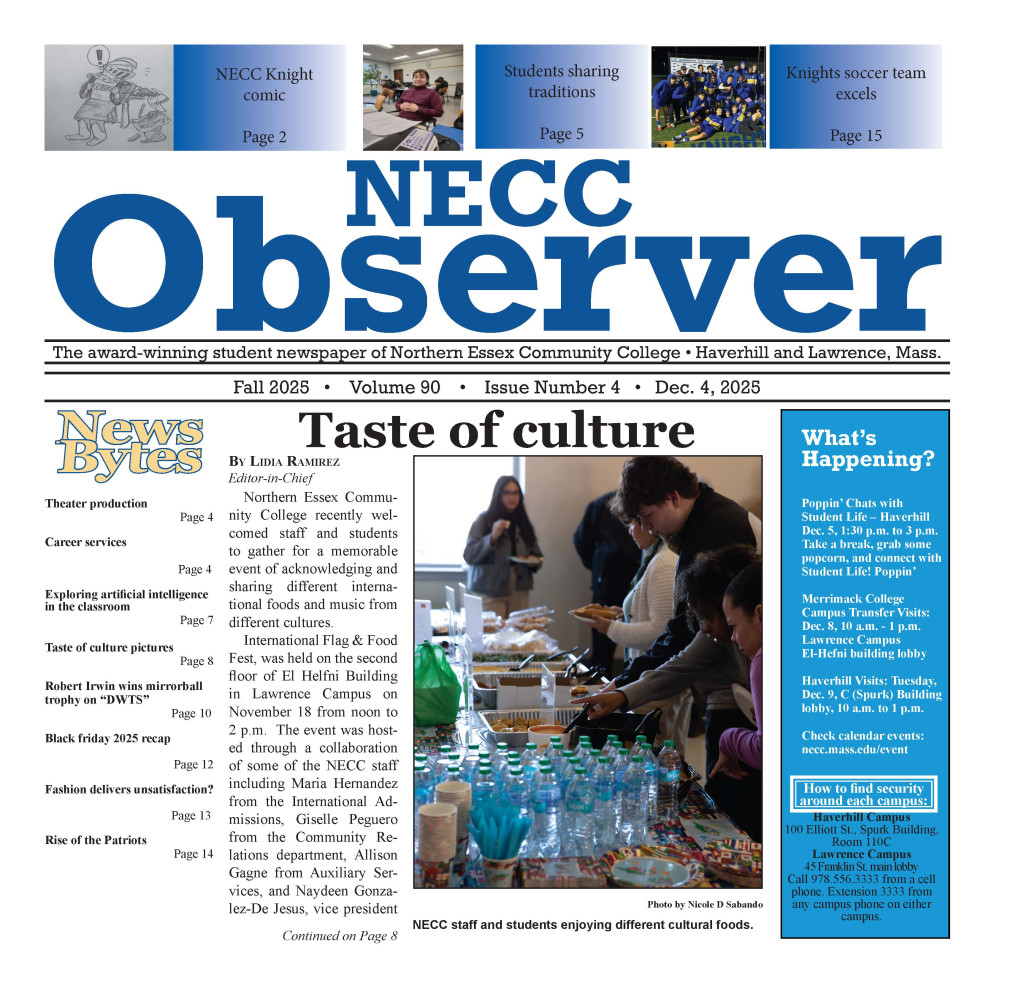“Service learning is beneficial to both faculty and students,” said NECC Service Learning Coordinator Paula Richards. Service learning is a type of education that incorporates relevant and meaningful community service, offering enhancement to in-class learning by giving students the opportunity to use their newfound skills in real life.
“Service learning is tied to the objectives of a course,” said Richards. “Sometimes students and faculty might get a little bit nervous thinking that it’s a lot of extra work, but it’s actually not an add-on. It’s integrated right into the course.”
Sam Rahiminejad, a computer science graduate from NECC, took the ESL (English as a Second Language) Advanced Writing class in the fall of 2013. Service learning was incorporated into that class by having the students visit Emmaus House to talk to people about their experience there. Students would interview the people at Emmaus House and then write a research paper on homelessness and human loss.
“It was really helpful,” said Rahiminejad. “It improved my self-confidence.”
“I would definitely recommend this to all faculty to incorporate into their classes if possible, and certainly to get students involved,” said Professor Marc Mannheimer, who teaches an Introduction to the Creative Experience class.
The class is for people who plan to be social workers or drug and alcohol counselors, giving them an overview of how the arts can be used therapeutically.
“I am partnered with the Haverhill Boys and Girls Club. My students spend at least 10 hours over the course of the semester there working on various projects, seeing how the things that we’ve been studying in class relate to what goes on at the Boys and Girls’ Club and working with the kids there,” said Mannheimer.
Professor Amy Cameron has her students in the ESL Advanced Listening and Speaking class at NECC involved in service learning this semester as they visit a local assisted living home, Haverhill Crossings. The students visit Haverhill Crossings four times, four weeks in a row, during the semester. This will be the second time the students in this class have had the opportunity to use skills learned in the class in a real life experience.
The main goal of the class is to improve confidence with speaking, listening and understanding the English language. During this time they work on a biography interview project that will help them to develop their English skills. Although the project is mainly to help the students learn, the seniors enjoy getting to interact with the students and answer their questions for the project.
“Students get a chance to practice speaking English with a native speaker,” said Cameron.
“This is a really good opportunity to practice in a natural setting.”
The first visit is an introductory visit to help the students and the seniors to get to know each other.
The next two visits are used for interviewing. The students are matched up with seniors who have chosen to be involved with the service learning project and interview them about different seasons of their life. Asking the questions and writing down the seniors’ answers helps them to practice English. Many of the seniors were more than happy to help the students with any pronunciation or grammatical issues they had as they were interacting.
At the last visit, the students give the seniors they interviewed a framed picture with the summary of the seniors’ answers on the different seasons of their life. The seasons are split into spring, summer, fall and winter, following from their early childhood years to their senior years.
“Last semester when I did this project, the seniors were really excited and grateful for the gifts we gave them at the end,” said Cameron. Two of the seniors cried upon receiving the gift at the last visit.
“I was impressed with how meaningful the project was,” said Cameron. Even after the project ends, some students choose to return to Haverhill Crossings as volunteers. While most students had a negative feeling about it before starting the project, they “ended up having a positive feeling after,” said Cameron.
For more information on how to get involved in service learning at NECC, you can contact Paula Richards at prichards@necc.mass.edu.

